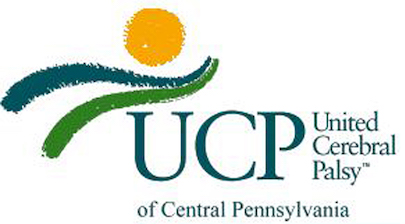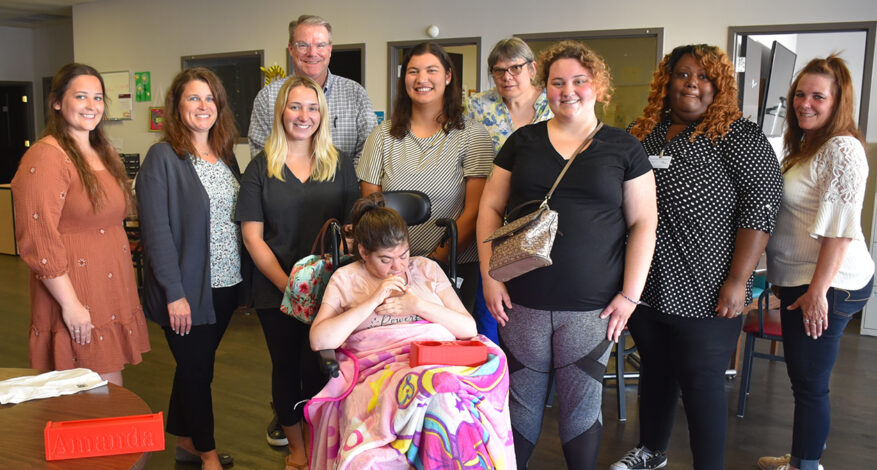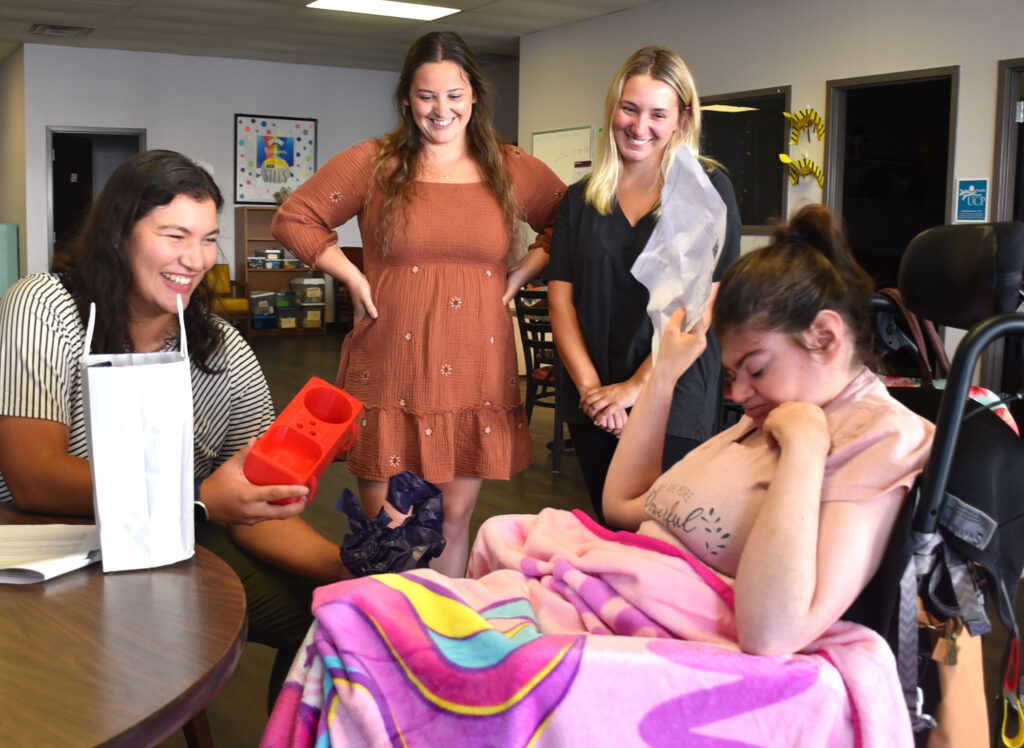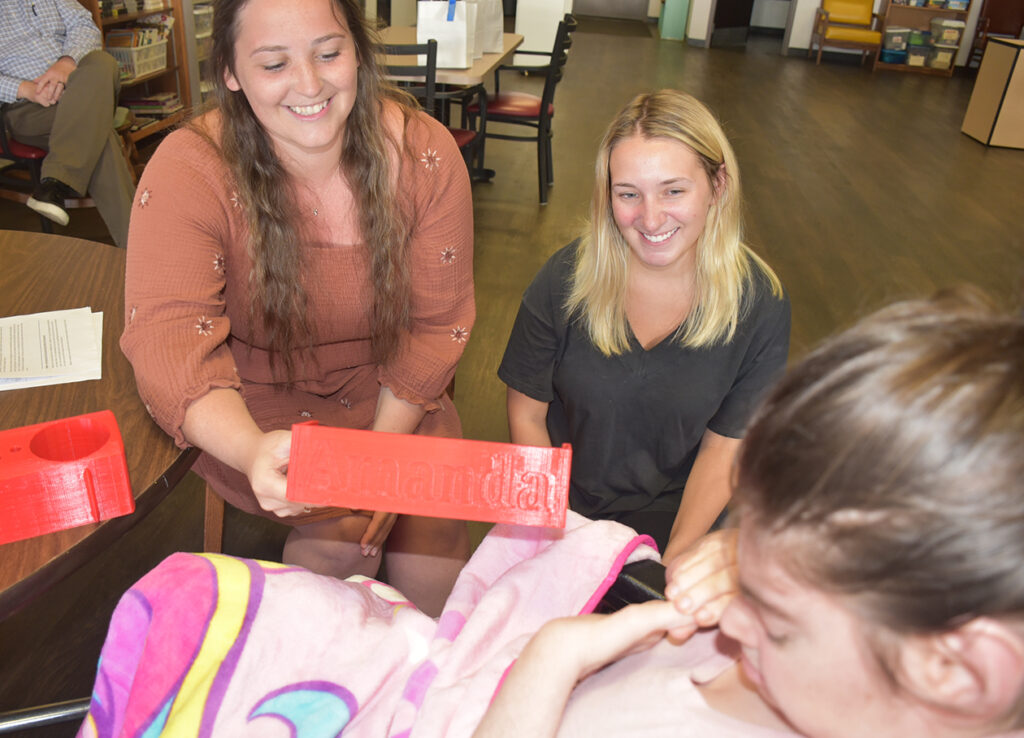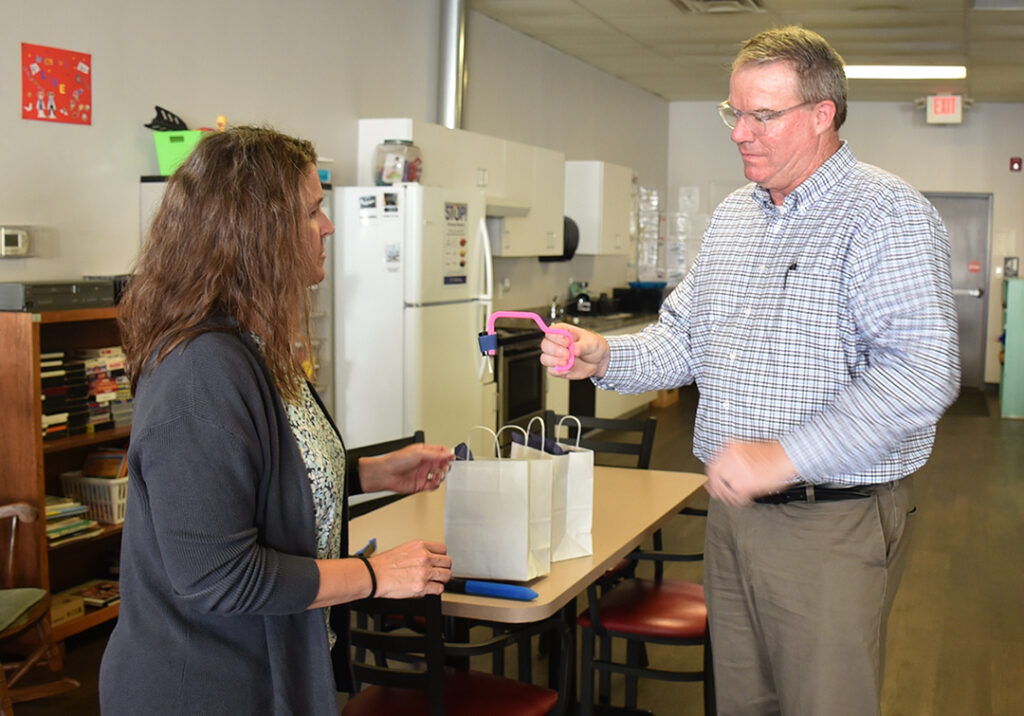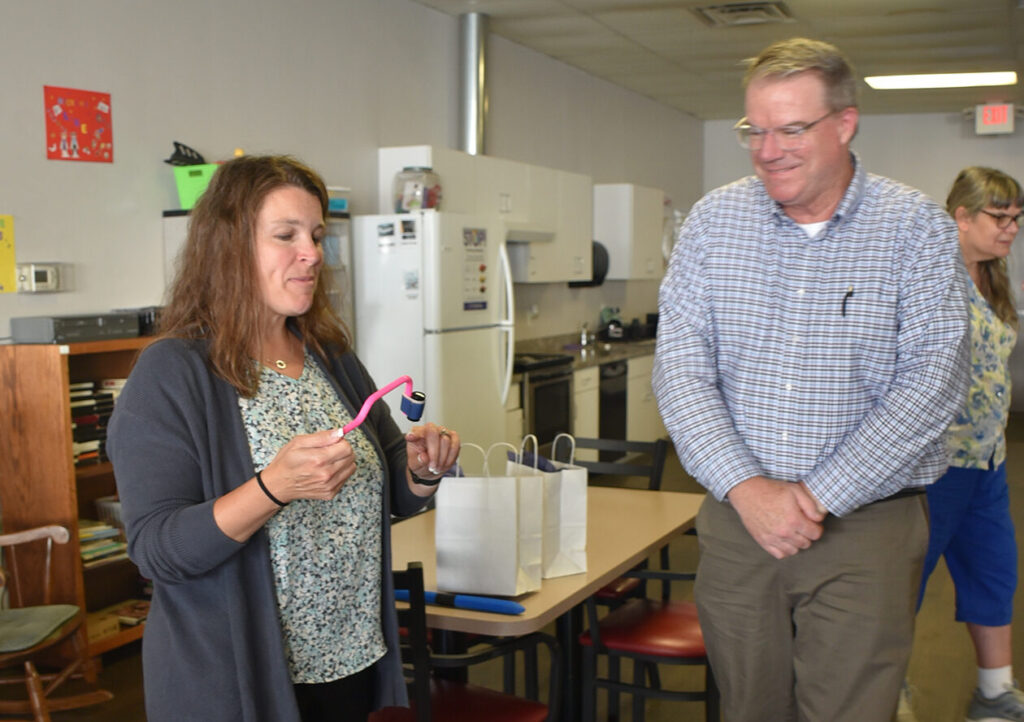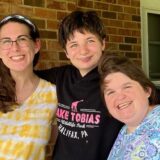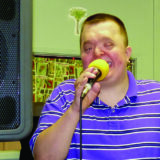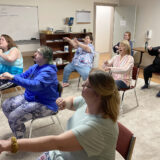Technological Advances Enhance Impact of Assistive Technology
OVER THE COURSE OF THE PAST YEAR, this column has highlighted the many ways UCP has evolved since 1953… in terms of the varying diagnoses of the individuals we support, the range of services we offer, and the many ways in which those services are delivered. Rapid, ever-changing advances in technology—coupled with the fact that many of these advances have been adapted for use outside of the tech sector—have created opportunities for today’s users of Assistive Technology devices and services. 3D printing, for example, allows for the creation of custom pieces that are better able to meet individual needs.
UCP AT Services staff proactively pursue opportunities to collaborate with organizations that are incorporating these technological advances in their work or studies and who are willing to share their outcomes. One example of that approach is a recent collaboration between UCP’s AT Services and Messiah University’s Master of Occupational Therapy (MOT) faculty and students.
According to James Foster, Assistant Clinical Professor at Messiah University, he was referred to UCP by Temple University’s TechOwl in the summer of 2022. Prof. Foster was already familiar with the organization as he has had guest speakers from UCP share their experiences and knowledge with his students in the past, and he has borrowed AT items from the “lending library” several times for tech. So, when given the opportunity to have his students create and produce 3D printed items that would enhance accessibility or mobility for UCP participants, he was all for it. “Partnerships with members of our community, such as the one with UCP, provide our students with real life experiences outside of the classroom. They also provide them with valuable opportunities to engage with individuals served by UCP.”
UCP Director of Childhood and Ancillary Services Marci Walborn, who is also a licensed Occupational Therapist, provided Prof. Foster with background on several individuals who participate in UCP’s Community Participation Supports (CPS). The individuals in question each have different diagnoses which require varied Assistive Technology supports. It was up to the students to decide what type of items they thought would be beneficial to the individuals, and then take on the task of designing and producing them.
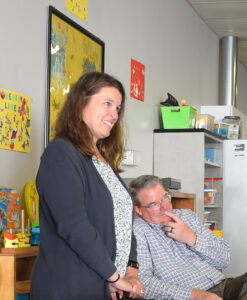
Director Walborn and Prof. Foster arranged a date and time for the students to present their final project to Amanda, one of the UCP participants. The students were previously told that Amanda is non-ambulatory but that she is very tactile. She loves to access and manipulate objects that are placed in front of her. The students created a small box for Amanda’s wheelchair, with built-in cubbies to hold various items. They even personalized the final product with Amanda’s name in raised print on the front! Amanda beamed with surprise (and the students with pride) when they placed their creation in her lap. She immediately began squishing up paper to put in one of the cubbies.
As for the students, the assignment proved to be a great learning experience from a technology perspective. Makenna B remarked, “3D printing has been an exciting innovation in recent years and one that is becoming more accessible to those outside the tech sector. The experience of creating these pieces was a great introduction to the 3D printing process and provided a strong basis from which continued practice may occur for us as upcoming Occupational Therapy practitioners.”
As for the collaboration with UCP, Makenna said, “Being able to gift the custom device directly to Amanda was extremely rewarding as we were able to see exactly how the device would positively impact her and her caregivers.”
Fellow MOT student Arianna R gushed with excitement over the entire experience. “The chance to custom-design a specialized piece of equipment was truly extraordinary! The use of 3D printing in the design and construction of assistive technology represents an incredible tool for Occupational Therapists. It gave me the opportunity to unleash my creativity and craft something both unique and specifically functional for Amanda.” Arianna, too, said there was much more than technical knowledge to be gained through the process, “The most meaningful part of this experience was being able to present our 3D printed device in person. It allowed us to see how appreciative and excited Amanda, her caregivers, and the staff were to receive a unique creation.”
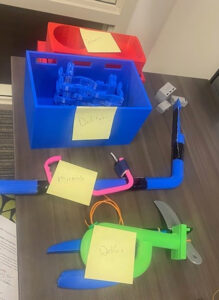
Other custom-designed 3D items created by Makenna, Arianna, and Hannah to be delivered to the other CPS participants included:
-
- Long-handled tool holder
- Nail polish brush holder
- Adaptive spoon/utensil holder
- Comb holder
- Wheelchair/walker baskets
Director Walborn was thrilled with the outcomes of the collaboration and the 3D printing projects. “Working with individuals with unique and diverse abilities requires the ability to be creative and adaptive in order to help someone reach their full potential. This is what I love about the field of OT, being able to focus and use someone’s strengths to help them achieve independence.”
When asked for his thoughts about the impact of technological advances on AT services (and by extension on the delivery of OT), Prof. Foster responded with excitement. “This is an area of OT that I am passionate about. We live in an awesome time right now, with providers learning how technology, such as 3D printing, VR (virtual reality), and AI (artificial intelligence), can be used to serve individuals with occupational dysfunction. I am excited to help our students learn about these technologies and see the endless possibilities they present.”
Learn more about UCP’s AT services: email ATUCP@ucpcentralpa.org or call 717.737.3477.
